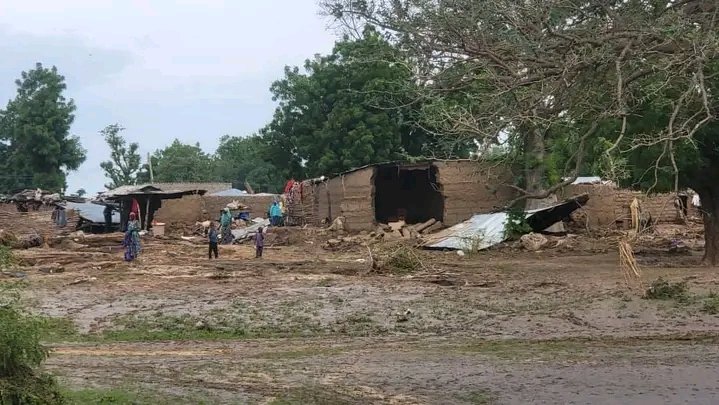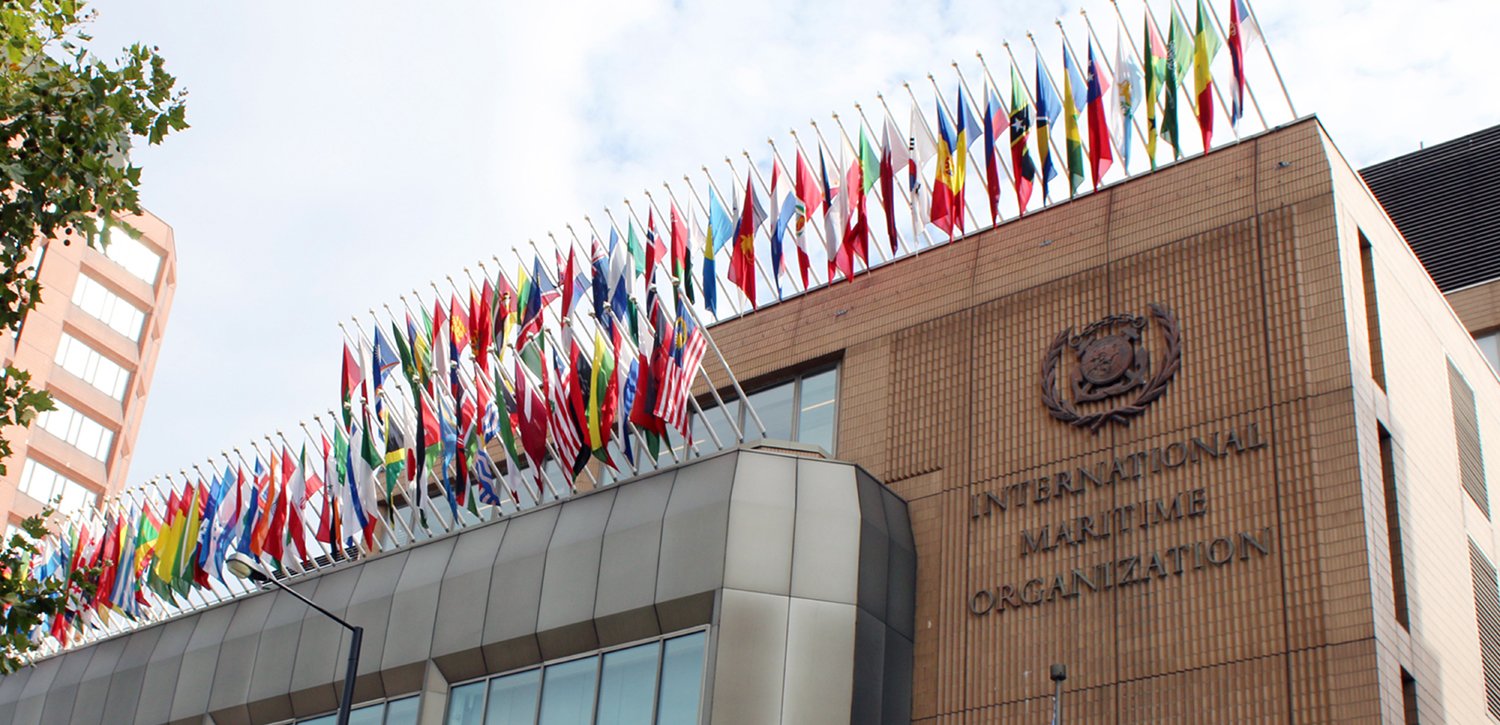Apparently, the hike in electricity tariffs announced by the Federal government was the dominant issue in nearly all forum of discussion among Nigerians and even those in the Diaspora. However, knocks, anger have followed the Nigerian Electricity Distribution Company’s (NERC) electricity tariff hike for Band A users, consumers who enjoy at least 20 hours of power supply.
John Nwokocha weighs in the emotions, tailing the development across the land.
Public Provokes
Over the last week, the National Electricity Regulatory Commission (NERC) announced a bombshell as it were, to the effect that tariffs paid by DisCos’ consumers across the country have been jerked up by over 300%. Expectedly, the development has generated unprecedented reactions in the polity as never before in recent time, that a single issue could provoke almost all and sundry to react.
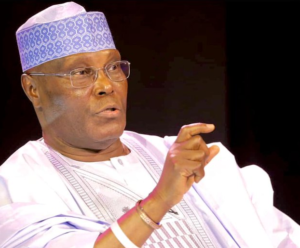
Ex-VP, Atiku: “…it will worsen the suffering of the people”
Former Vice-President Atiku Abubakar fired the salvo less than 24 hours after the increase in electricity tariffs was announced. He rejected the hike. He said it will worsen the suffering of the people.
Lacks Adequate Notice
On Friday, Atiku in a series of tweets accused the federal government of unleashing another dose of reforms without adequate notice and without an adequate post-reform plan to mitigate the pain.
The PDP chieftain said the increase in electricity tariff is coming at a time when “Nigerian citizens are going through excruciating difficulties occasioned by the withdrawal of subsidy on PMS and floating of the domestic currency.
Create Difficulties for Citizens
“The government has not successfully dealt with the pains associated with the implementation of those measures, and now this. The hike in electricity tariff will create more difficulties for the citizens as inflationary pressures are elevated.
“Our manufacturing sector will similarly be impacted negatively. Not only are they paying higher interest rates on their bank loans but also paying more for diesel, paying higher wages as a result of the new minimum wage. The President’s men are pushing the economy into a deeper crisis. His reforms are without a human face.”
Furthermore, Atiku lampoons the government, saying, “It is important that we understand the root cause of the inefficiencies in the power sector before unleashing another dose of reforms. It is time to revisit the privatization exercise that produced the DISCOs.
“Tinubu must (a) ensure that these reforms are sequenced, (b) implement measures to mitigate the pain, and (c) hold the NERC responsible for ensuring improved service delivery.”
President Abuja Chamber of Commerce and Industry, Obegolu: ‘How electricity tariff hike’ll stifle businesses’
As for the Abuja Chamber of Commerce and Industry (ACCI), it concern over the recent increase in electricity tariffs, is it could negatively impact on the ease of doing business in Nigeria.
The President of ACCI, Mr Emeka Obegolu, told the News Agency of Nigeria (NAN) in Abuja on Saturday that the hike would significantly impact businesses across various sectors of the economy.
Obegolu acknowledged the various challenges already faced by entrepreneurs and investors and opined that the Small and Medium Enterprises (SMEs), which are crucial to the economy, would be greatly hit by the hike in tariff.
He said, “The ease of doing business is a critical factor for fostering economic growth, attracting investments, and creating job opportunities.
“Regrettably, the increase in electricity tariffs can hinder these efforts by imposing additional financial burdens on businesses, especially SMEs, which are the backbone of our economy”.
Higher Operational Costs
The ACCI president highlighted the importance of electricity in businesses, and said that any disruptions or cost increases associated with electricity supply could lead to higher operational expenses.
Obegolu also lamented it would hinder businesses’ ability to invest in innovation and expansion and impede their competitiveness in both domestic and international markets.
Subsidy Removal Already Affecting Businesses
Another key worry of the ACCI is that the tariff hike, combined with other economic challenges such as the removal of fuel subsidy and foreign exchange unification, could further compound difficulties faced by businesses.
‘95 per cent of DisCos’ customers in Band A don’t get 20hrs of electricity daily’
To Mr Eket Eko Ogbonga, the National Secretary of the Network for Electricity Consumer Advocacy of Nigeria, it will spark unprecedented controversy.
Band A Consumers
Ogbonga speaks on the controversial subsidy removal through an increase in the tariff paid by consumers in Band A who, the Nigerian Electricity Regulatory Commission (NERC) says, are consuming 20 hours of electricity and above daily from N68/KWh to N225KWh, saying less than five per cent of those in the Band get 20 hours supply.
He also speaks on the metering problem and how Distribution Companies (DISCOs) are smartly collecting money for electricity not supplied,
What kind of advocacy has been going on since the announcement of the tariff increase for Band A electricity consumers last week?
What are we going to tell Nigerians when the government has already made up its mind? Before this time, we saw it coming and we warned against the implication it’s going to have on the economy and Nigerians.
NERC Lacks Capacity
We are not so much against tariff increases, the problem we have is that we have a Commission that is always churning out regulations but with no capacity to monitor implementation.
I deal with facts. In 2020-21, the Commission came up with what it called a Service-Based Tariff based on the principle that the more electricity that is supplied to your business or household the more you pay. Now this led to the reclassification of electricity consumers’ tariff bands. We have band A:
The consumers there would be supplied a minimum of 20 hours a day to pay at that rate; Band B 18 hours, Band C 12 hours, Band D 8 hours, and Band E 4 hours. We surveyed Band A customers and we discovered that less than 5 per cent of those in that Band received 20 hours. We discovered that some customers in 11 months never had 18 hours of electricity supply but they are on Band A.
We have meters and the prepaid meters are smart. If you have 50 outages in a day, the meter records it. So you can extract that information. So there is software you can use to get that information without tampering with the meters.
DisCos Collecting Money from Nigerians for Power not Supplied
Why do you think the DISCOs revenues are rising? It is because they are collecting money from Nigerians for power not supplied. So, we have a situation where some hoteliers on Band A never had an 18-hour supply for 11 months.
So, why do you think the DISCOs revenues are rising under the Multi Year Tariff Order, MYTO? Section 19 of MYTO and Sections 13 and 14 of the MYTO 2023, 2024 state clearly that where there’s failure on the part of the Distribution Company to deliver on the committed service level of 20 hours minimum for Band A, 16 hours minimum for Band B, 12 hours for Band C, there shall be retroactive adjustment of customers in those clusters and compensated. But there is no condition on how to measure. Was it going to be the DISCO that would measure, was it the Commission or the customer? So when we made noise about it, they came out with a regulation on compensation.
Nothing is said about how we will measure; you left it to the DISCOs and not the consumers. Will the DISCOs now say “We did not supply electricity to you; we are going to compensate you?”
Haba! The question is how do you measure it? Is there a mechanism put in place by the Commission on how they can measure? They are talking about going to feeders.
Do consumers know what feeders are? Do consumers have access to the feeders? So, these are the problems we are having.
Tariff increase, whether you call it cost reflective tariff, is not the silver bullet that is needed in the market. Why tariff increase or a reflection of cost in the market?
Dancing Around Problem
We are dancing around the problem and our priorities have not been set right. First, what is the percentage of customers in Band A that are metered? We have a huge metering gap.
The meter is the revenue assurance tool in the business of electricity. Why do we have revenue shortfalls, huge subsidies they are talking about? Aggregate, technical and commercial losses are as high as 47 to 49 per cent. This means that for every N100 of electricity generated, transmitted and distributed, you are losing N47 to N49 and you are recovering the balance.
Let’s look at the situation in Zambia, Kenya and South Africa. In Zambia for instance, to guarantee revenue in the electricity sector, the meter is paramount. If you meter 100 per cent as it is done in Zambia, their ATC and C is 17 per cent.
Huge Metering Gap
The solution to the liquidity in the market is the huge metering gap of over 7 million of unmetered customers which now leads to the inability of the Distribution Company to collect revenue. You are not guaranteed your revenue. I bought energy three days ago for N50, 000 for services not yet used.
If they claim so, let them provide the evidence because we are dealing with their document.
Service Based Tariff
The MYTO that threw up Service Based Tariff, Section 19 of the 2020 or 2021 and Sections 13 and 14 of MYTO 2023 state clearly that where there is a failure on the part of the electricity company to deliver up to a certain level, and upon confirmation by who is not stated and it says if it comes to NERC, and NERC verifies it, then NERC will order for a retroactive adjustment and compensation.
They should mention one customer in the whole of Nigeria in 2022, 2023 and 2024 that they have measured its supply and asked for compensation. Would you beat your chest that you get 20 hours of electricity supply daily? The real thing is that Nigerians are not being supplied electricity based on the committed service level.
World Bank
Sometime in November 2022, some people and I were invited to the World Bank, and we were told that the Federal Government was asking for additional funding of $3 billion for the power sector and they told us about $9 billion that was already spent.
Who is tracking that money and where has the money gone? What impact has it made in the sector? The problem in our electricity sector is not what these guys want Nigerians to believe.
Tell Nigerians Truth
The problem is the ability to tell Nigerians the truth about what is going on in the sector.
What should we do if we are going to have a grant or a loan of $3billion and you pump this money to raise the metering level to at least 80 to 85 per cent, the liquidity prices will drop sharply and the Federal Government would not be wasting that amount of money.
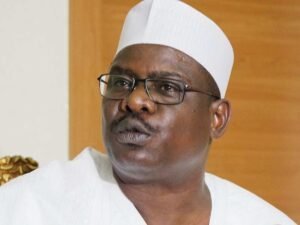
‘Wrong timing’, Ndume rejects hike in electricity tariff
Senator Mohammed Ali Ndume, Chief Whip of the Senate and representative of Borno South in the upper legislative chamber, has faulted the recent surge in electricity tariffs.
He criticized the timing, saying Nigerians were still reeling from the removal of fuel subsidies.
The Nigerian Electricity Regulatory Commission (NERC) approved a significant 300% increase for Band A consumers, allowing power distribution companies to raise rates from N68 to N225 per kilowatt-hour effective April 1, 2024.
In a statement on Saturday, Ndume condemned the decision and urged the federal government to reconsider in consideration of the hardships faced by Nigerians.
He highlighted challenges such as soaring inflation, dwindling purchasing power, insecurity, and other adversities.
The former Senate Leader emphasized the need for the government to prioritize stable electricity provision, tackle inflation, stabilize the currency, lower food prices, and enhance basic amenities before implementing tariff hikes.
Ndume also questioned the lack of consultation with the National Assembly, the representatives of the people, regarding such a crucial decision, noting that constituents were reaching out to lawmakers to intervene and reverse the steep increase.
Various stakeholders including labor unions, ethnic, and religious leaders have also expressed strong opposition to the abrupt tariff hike, warning of its dire consequences.
Ndume said: “The timing of this hike is very wrong. Nigerians are grappling with many challenges. To put this fresh responsibility on them is very unfair.”
“Nigerians are yet to recover from the fuel subsidy removal of last year. Many Nigerians are still grappling with the ripple effects that removal had on them. To now come up with this is wrong.
“There ought to have been some consultations, especially with the National Assembly as representatives of the people. We were not consulted. We saw the news like every other Nigerian.
“The inflation is still very high. The prices of food commodities, drugs, transportation, school fees, and other daily expenditures are still on the high side. To now add this new burden is unfair.
“The minimum wage has not been increased. Many state governments are yet to even pay the current minimum wage of N30,000. How do we expect the people to survive? We’ve to be very realistic and feel the pulse of the people we represent as a government.
“For me, I think the Federal Government should first of all provide stable electricity, reduce the inflation, stabilise the naira, and prices of food commodities. Then, the purchasing power of Nigerians must significantly improve before we can place a fresh responsibility on them as a government.
“The federal government needs to give the National Assembly the opportunity to also step in and consult because we represent the people. We feel their pulse, and we know what they’re going through right now.”
Afenifere to Tinubu; Reverse Electricity Tariff Hike
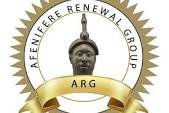
Compound Economic Woes
The pan-Yoruba socio-cultural group Afenifere has also joined Nigerians to condemn the recent hike in electricity tariff, and told President Bola Tinubu to compel the Ministry of Power to reverse the increase.
In a statement on Saturday, by their spokesman, Jare Ajayi the group said the increment amounts to paying for inefficiency and further compounding the country’s economic woes.
The statement read, “In conclusion, Afenifere called on President Bola Tinubu to compel the Ministry of Power, to reverse the present hike, go into alternative energy sources like solar and wind, review the terms with which the 2013 exercise was carried out, and be more innovative”.
It added, “As the experience from the subsidy on petrol has shown, those who suffer from the government’s withdrawal of subsidy are not necessarily those who benefitted from it”.
Average Nigerians as Victims
“The victims would be average Nigerians who would patronize services being rendered or items being produced by high power users since they (the latter) would easily pass the higher cost onto their customers.”

Why New Electricity Tariff Took Immediate Effect – NERC Commissioner
A commissioner with NERC, by the name Yusuf-Ali has justified the hike. In an interview with the Channels TV, the commissioner said, “I think it’s unfortunate but also understandable the circumstances facing Nigerians.
“I think the current review is seen as part of reforms that are not so easy to accommodate now but I want to that this tariff review is focused on only 15% of the customer base.
“The difficulty on the government is very clear; the cost of producing electricity is always going to be there, the only question you have to ask yourself at any point is who foot the bills.
“All around the world, three reviews in four years, considering the scale of the macroeconomic changes we’ve had in our own economy, doesn’t go anywhere near enough.
“So, for way of context before this review, we were operating a tariff that was determined in December 2022.
Power Sector is Indexed to the Dollar
“Now I’ll just choose one parameter that encapsulates the big issue that we’re facing; the issue of gas price – gas price for the power sector is indexed to the dollar.
“In December of 2022, when the tariff was set, the gas was set at $2.18 per MMBTU (one million British thermal units). That is about N930 for every unit of gas.
“As at today, when you consider the fact that gas price was slightly increased by 11% recently, now costing N3,500. Now we have a decision to make, if the thing cost this amount, as a commission, we’re in the middle of a very interesting triangle.
“We have consumers who are there to be protected, there’s the government who is aligned with the consumers to ensure that things are not too hard on them, but then we have the investors who are the people that put their money in.
Immediate Effect
“Yes, it took immediate effect and I think that is consistent with the provisions of our business rules with regards to this type of review. Now there are three type of reviews that we do and each of the reviews have different procedures to how you go about them. We have what we call the minor reviews which is what we did this week.
“There are minor reviews which is just month-on-month. Those ones do not require any consultation with consumers. Then we have major reviews which are bound to happen once every five years. For major reviews, we are required to have stakeholders’ engagement to get input in determining the new tariff.
“Then we have what we call extraordinary review between a five-year period if there has been a significant change in circumstances. In this case, our licensees, the DisCos, have a right to appeal to us, so that happened July last year.
“They wrote to us and said they want a new tariff because dollar has changed and so on and so forth. For a week in the whole of July of last year, we held rate case hearings which is in line with international best practices. We invited consumers to discuss the proposal by the DisCos.
“When you check the order that we issued in January, we were transparent about cost-reflective tariff. The change that has happened this April is that the government has said the subsidy we are willing to pay, our appetite is reduced, so design a tariff regime with the distribution companies that would save us N1.14 trillion and it’s important to highlight that number because as you know very well, the federal budget for this year is N27 trillion. If you do N1.14trn of N27trn, that’s over 4%.
I’m Also a Consumer and I Have Family
“In addition to my work at NERC I’m also a consumer and I have family.
Reality
“The reality is there is some pain that comes with adjustment but the reality also is that you are very familiar with the Nigerian landscape. So, for example, Nigeria is very unique in the sense that it’s probably one of the few countries that has the highest level of prepaid metering around the world.
Prepaid Meters
“Let me just quickly explain on the issue of prepaid meters. The issue is the bills for electricity consumed in April, for example, will only become mature for the discos in May and June, that’s when they will have to collect the money and pay the suppliers of electricity.
“The challenge is if you allow a notice period, customers will bulk up and sell at different rates. So, for example, if this will be effective by end of April, people that normally buy only 20 units for one month will go and borrow money to buy more units to cover them for April, May, June.
“No. I have some interesting data for you. Out of the about 1.8 million customers that are affected by this, 75% of the energy that will be consumed by that band goes to the industries.
“There were lot of people saying, ‘Oh, this is bad for industry, they will shut down’ and so on and so forth. For industries, the alternative if they don’t get great power is that they get diesel generator or CNG.
How do I know if I’m a Band A customer?
“If you go check your bills or any vending that you’ve done in the last few months or the bill that you have paid for postpaid customers, usually there’s a requirement from the commission, it will tell you on this feeder and you’re a banded customer.
“The Electricity Act 2023 is very clear that the commission has a mandate to determine tariffs that allow operators. This is across the value chain, — generation, transmission and distribution. Those stakeholders need to recover any investment that they make.
DisCos Sanctioned
“On the issue of DisCos being sanctioned for not meeting service requirements, there are some cases that has been done but I also need to provide some clarification.
“A Disco is just one part of the value chain, a Disco is basically the last mile. What happens is every power plant for example needs to generate power, TCN needs to carry the power from Eko, Lagos State and carry it to Abuja and then Abuja DisCo will now be the last to bring it to your house.
“Now what has happened is that the premise of the service-based tariff in the first design assumed 5,000 megawatt hours per hour.
“The challenge is once the generation is not available, you cannot hold a Disco culpable for not delivering a service.
How do you monitor compliance of the disCos? How is it measured?
“In the simplest form, the service-based tariff is based on feeders, so a feeder is basically like 11 kv line that supplies many households.
“Each of those feeders have meters. Now the commission has mandated the distribution companies to install smart meters on these 11kv feeders, so what smart meters do is that they can be remotely read so every hour or in some cases 15 minutes, in some cases 30 minutes and in the worst case 1 hour, the meter would read its data to a what is called a Meta Data Management System (MDMS).
“So, we can definitely see that if a feeder has a zero reading for any hour that means that there will be no supply for the customers on that feeder and that’s how we measure the compliance for service delivery”.
NERC Fines AEDC ₦200m for Violating New Tariff Order
Africa Health Report recalls that the NERC fined the Abuja Electricity Distribution Plc (AEDC) ₦200m for violating a new tariff order.
In a statement on Friday, NERC explained thus, “AEDC has been fined ₦200,000,000 (Two Hundred Million Naira) for failure to comply with the prescribed customer band classifications for the tariff billing.”
The decision comes after a detailed review and customer feedback, which revealed that AEDC had applied the new tariff to all customer bands, contrary to the Order, which was designed to ensure fair billing practices.
NERC also mandated AEDC to reimburse all customers in Bands B, C, D, and E respectively that were billed above the allowed customer categories/tariff bands provided in the Order.
AEDC is also required to reimburse affected customers through the provision of the balance of customer tokens that the affected customers would be entitled to receive at the applicable rates. All token reimbursements shall be issued to the affected customers by 11 April 2024.
In addition to the reimbursement, AEDC has been directed to pay the sum of ₦200,000,000.00 (Two Hundred Million Naira) as a fine for the flagrant breach of the Commission’s Order.
The company is also required to file evidence of compliance with the directives with the Commission by 12 April 2024.
By and large the development has not gone down well with Nigerians, electricity consumers across the length and breadth of the country. Besides the timing being faulted, stakeholders also blame the government for insensitivity. The citizens are going through difficult times occasioned by food inflation which is being made worst by the removal of petroleum subsidy, combined with state insecurity all over the country.
New Way Forward
The government has been charged severally to take urgent steps to tackle insecurity.
Currently, state policing has been proposed as one of the ways to addressing insecurity in the country.
Interestingly, recently, 20 state governors expressed their readiness to buy in the proposed state police.
In the same vein, the government is urged to focus on prioritizing the needs of businesses.
This can be achieved by ensuring that the relevant authorities reconsider the tariff increase and explore alternative solutions.

